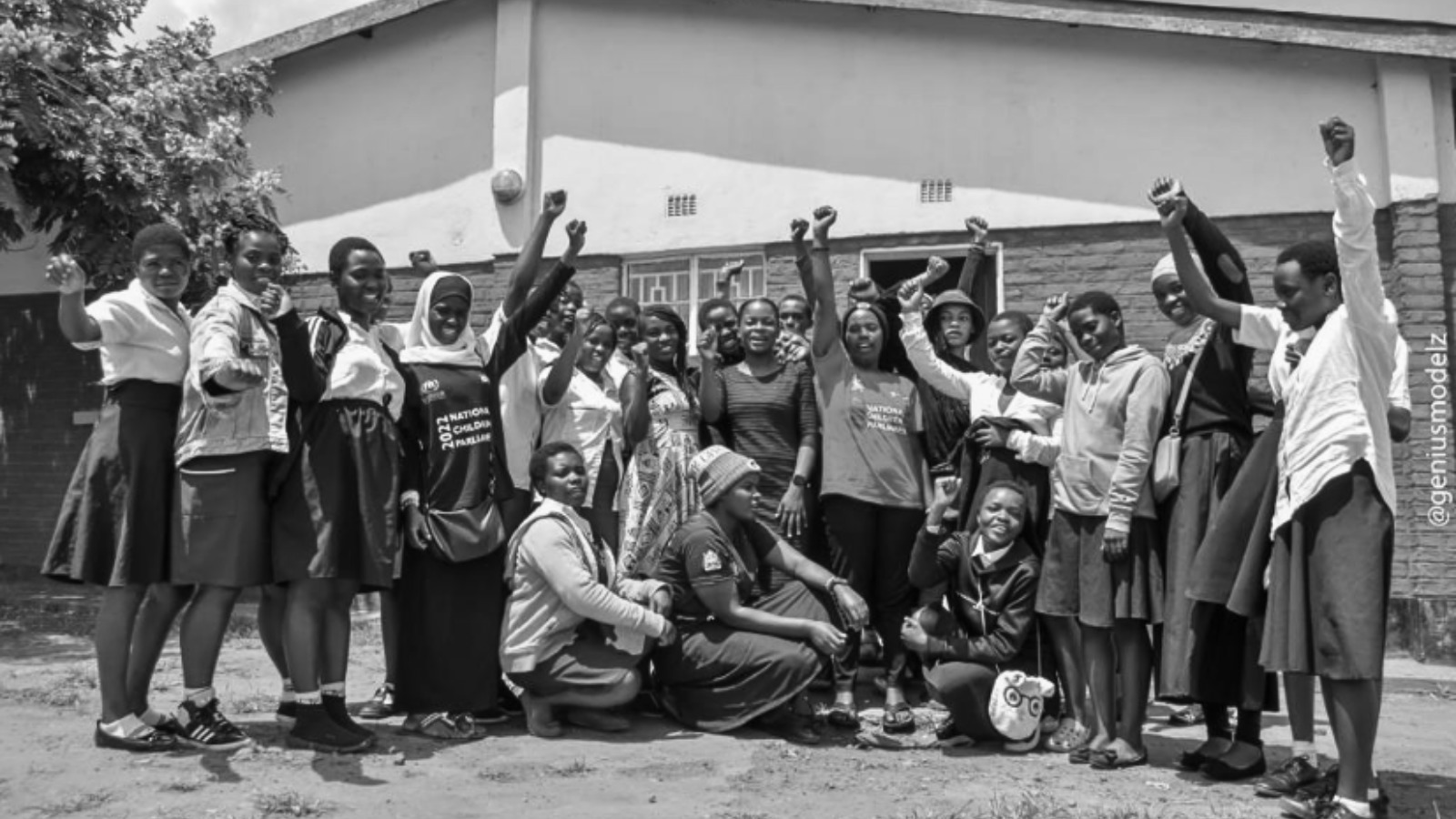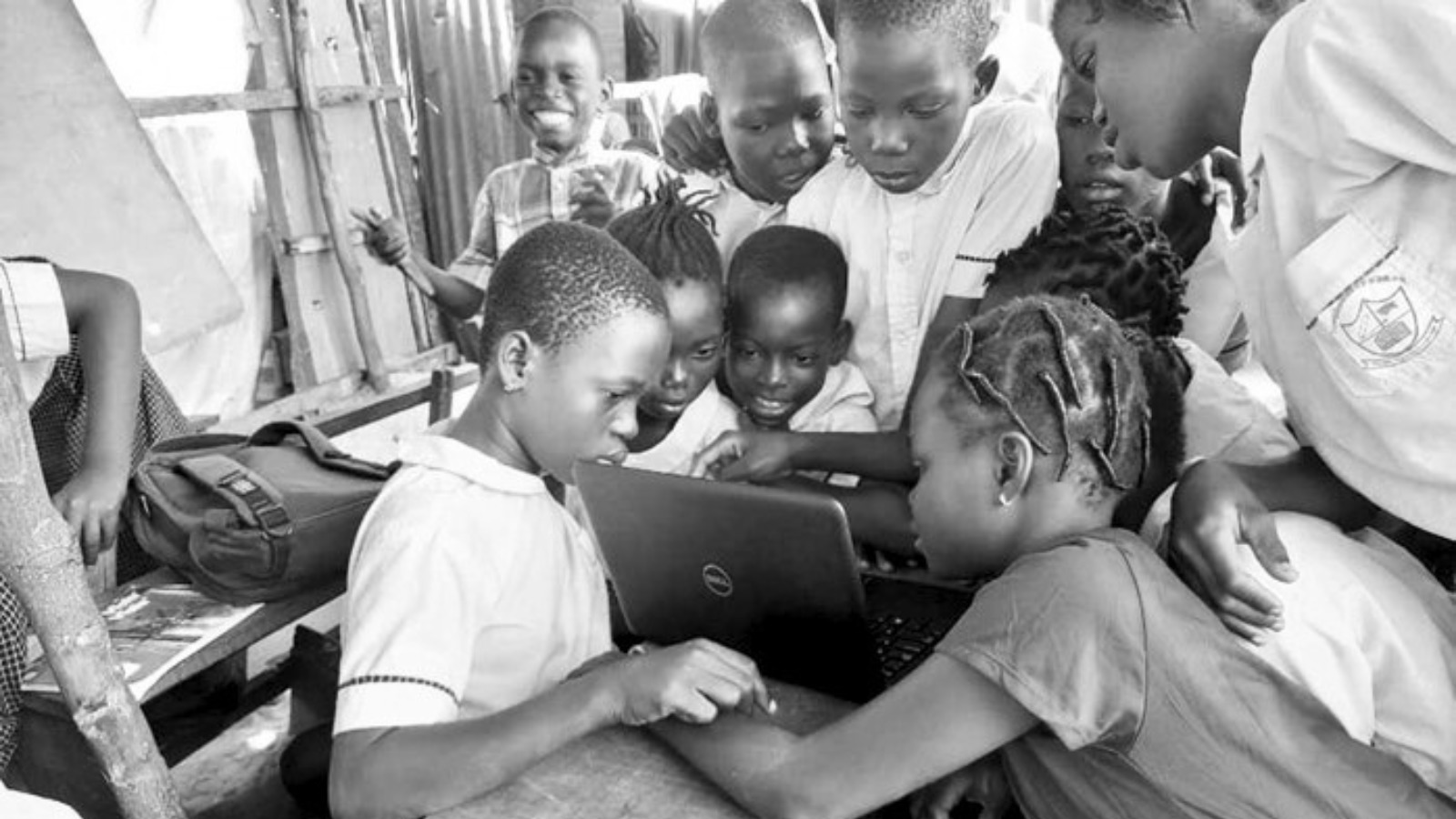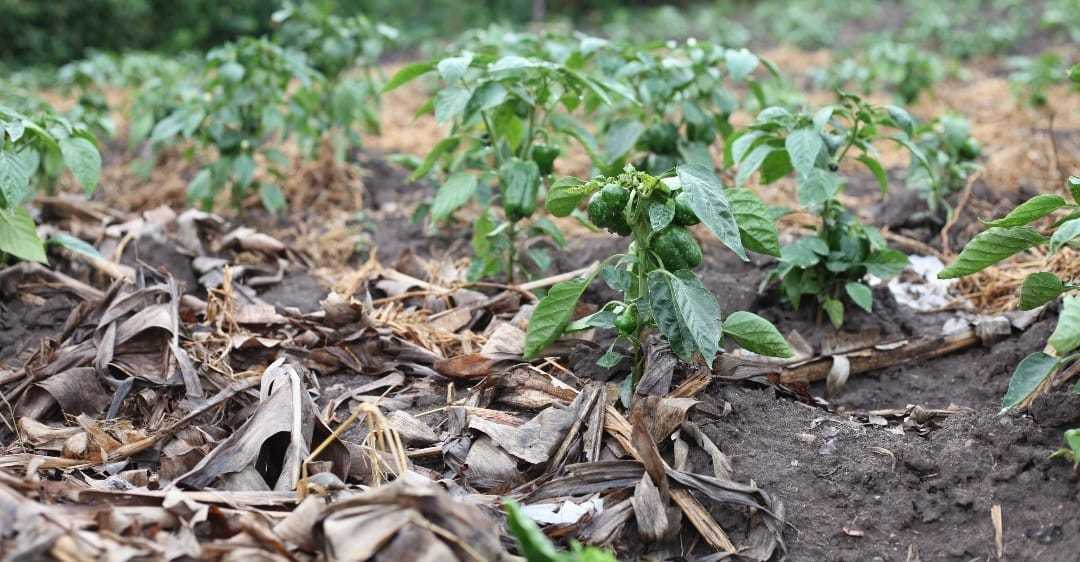
Divine Mugisha, founder of the refugee-led Supportive Pillar Organisation talks about her own hurdles in accessing education in Dzaleka Refugee Camp in Malawi that motivated her to help children in need accessing through the power of storytelling to garner support.
By Divine Mugisha
This story is part of the co-branded story series, ‘Rewriting the Narrative: Stories of & from Refugee & Community-Led Initiatives’ a collaborative effort between Samuel Hall, Youth Voices Community, Cohere, and Reframe Network. Members of various Refugee-Led and community-led Organisations part of the Reframe Network underwent an introductory training in storytelling and advocacy. They were then invited to share their personal narratives, capturing their journey, work, and the lasting impact of their initiatives. This collaboration aims not only to spotlight their incredible work but also to empower them with the skills to share their own stories effectively, fostering greater support, funding, and opportunities for their vital work.
My name is Divine Mugisha, and I am a 20-year-old on a mission. My roots trace back to the Dzaleka Refugee Camp in Malawi, and currently, I am pursuing my university education at the United States International University in Kenya. I proudly serve as the founder and executive director of the Supportive Pillar Organisation (SPO), a refugee-led organisation dedicated to enhancing the living conditions of refugees and underprivileged Malawians through improved access to education.
Since our inception in 2021, SPO has made remarkable progress in fulfilling its mission. As of September 2023, we have facilitated the education of 41 students, conducted two impactful mentorship workshops, and provided essential school materials to 9 students.
While I acknowledge that education does not guarantee instant success; for refugees and disadvantaged Malawians without the luxury of well-off parents, education becomes a crucial asset in securing a brighter future. This is why we remain unwavering in our commitment to supporting the most vulnerable students, ensuring their return to school, even if they must drop out due to financial hardships.
My dream is to create a better world for young individuals who live in extreme poverty, individuals who harbour dreams and aspirations. I firmly believe that no one is destined to suffer; often, it's a matter of luck and circumstances that can turn life into a nightmare. My early life was like that, too!
An Uphill Battle For Education
Growing up in a refugee camp, I faced numerous challenges in accessing quality education. I completed both primary and secondary schooling within those same camp walls. The classroom environment left much to be desired, with overcrowded rooms and teachers needing more enthusiasm for educating refugees. I found it challenging to absorb much from these classes.
Navigating the education system while handling household chores as a girl child was particularly tough. I had to rise as early as 2 a.m. to fetch water, followed by dishwashing and meal preparation before and after my classes. Despite these hardships, my determination to excel academically led me to carve out pockets of time for studying. I read while cooking while peeling potatoes, and even 30 minutes before embarking on my early morning water-fetching routine.
After 12 years, I completed my secondary education, ranking second in my school. It felt like I had achieved the highest position, even though my English grade was subpar. My parents could not afford to fund my education further, so I decided to pursue scholarship opportunities.
One such opportunity came from an international organisation. I completed the application process. However, I faltered during the interviews when I couldn't provide the "personal reasons for leaving my home country", despite clearly stating that I had left when I was just nine months old. Although my application was unsuccessful with the rejection note - "Apply again only when you have a different story" – it planted a seed of hope in me.
That's when I decided to take control of my own life. I understood that circumstances should not determine who I would become but who I could be. I reevaluated my vision, considering how I could lead a fulfilling life even within the confines of the refugee camp. It was then that I recognised my passion for helping others, extending beyond the mere tasks of daily life. Whether it was taking care of my friends, willingly tackling house chores even when they interfered with my education, tutoring my peers, teaching computer studies on Saturdays, or advocating for refugee rights in child parliament sessions—it was all driven by a desire to make a difference. I decided to co-found the Supportive Pillar Organisation with a like-minded friend.
During this time, I learned about the Mastercard Foundation Scholars Program and decided to apply. Thanks to my strong background in volunteering and leadership roles, I was selected to study at the United States International University Africa in Nairobi, Kenya. The feeling of finally securing a scholarship to leave the camp and embark on a journey to become a leader was beyond words.
However, as my excitement and aspirations soared, I encountered another challenge—the immigration office denied me a Conventional Travel Document (CTD). Months passed, and my situation remained unchanged. I visited the immigration office daily, even when the response was consistently negative.
The more I tried, the more disheartening the situation became. I was shattered, but I refused to let depression define my future. I sought therapy and started taking antidepressants. This period taught me the virtues of persistence and tenacity - and finally in 2022, I was able to travel to Kenya to pursue my studies.
Today, education has transformed my life. I've transitioned from a girl with tattered uniforms to someone who can afford branded clothing. The escape from poverty and the ability to envision a life where I could meet my basic needs kept me going and allowed me to conquer adversity.
Stories that Inspire Support: The Impact of the Supportive Pillar Organisation (SPO)
Having a brilliant idea and effortlessly securing support was a mere illusion. Some may start with grants or big donors, but for others, it begins with doing what they love and believe in—Supportive Pillar Organisation.
The journey of SPO commenced with two financially challenged young individuals. Initially, we believed applying for grants online would resolve all our financial challenges. Our projects depended on funding, and failing to pay our students' school fees would force them to return home, potentially forcing them out of school.
We also tried reaching out to people abroad to secure assistance, but unfortunately, most read our messages and then stopped responding.
So, we began sharing the stories of these young individuals facing severe hardships, but our social media posts often needed more attention. We persisted, even though financial stability remained elusive - our passion kept us going.
We continued sharing our stories and gradually realised the power of storytelling. Given our limited resources, we couldn't single-handedly change lives, but we could advocate through stories. Stories have the power to connect potential sponsors with those in need. They convey reality and emotions, crucial in influencing decisions on who, what, where, and how to help.
I discovered two types of donors—those who initially want to engage in charity projects but need the right opportunity and those who are deeply moved by a specific story and are compelled to help, sometimes even convincing others to join the cause.
Stories don't just bring sponsors; they also raise awareness about the issues surrounding a particular place and its people. As in life, no single organisation or individual can bring about comprehensive change. Various initiatives can address different aspects of a problem. For instance, while SPO focuses on secondary education, another organisation might support tertiary education or provide psychosocial assistance. This is why when telling stories, it's essential to depict the whole situation, making people aware of the overall context and then calling them to action to support your initiative.
Through these efforts, we garnered support, and today, we assist more than 30 students, with an additional six having completed their secondary education and awaiting university transitions. We support students from all three regions of Malawi, including refugees in the North, Central, and South.
Furthermore, we are actively working on establishing a boarding school to offer a nurturing and conducive learning environment with high-quality education. This will enhance the academic performance of our students who currently attend public schools with subpar educational quality.
This journey has taught me that greater things await those who persevere. By holding onto our dreams and aspirations, we can genuinely make a difference in the lives of those we aim to uplift. Dive into a quick visual journey of SPO:
The Journey of SPO in Photos:





